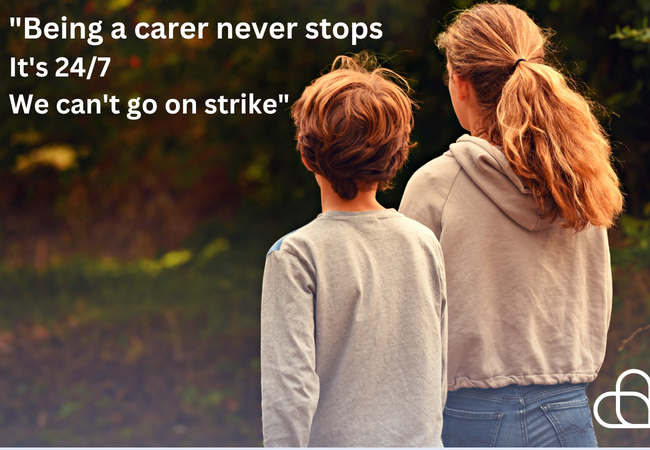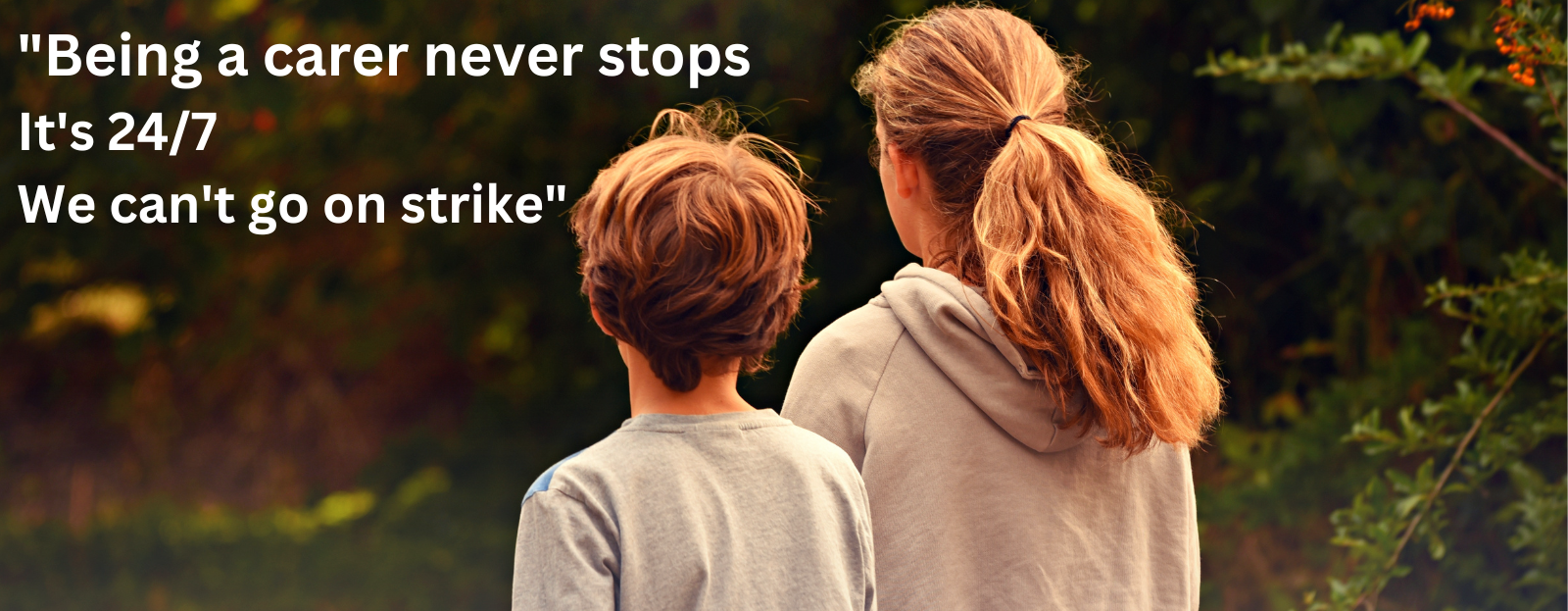“You don’t always know when a caring role is going to happen in your life. I’ve been in a caring role since I was seven. Being a carer never really stops, it’s 24/7. Even when you’re out of the house, you’re always thinking about it.
“For so many people who care for someone, it’s a constant battle to get funding and other requirements in place. COVID has made our caring roles so different, but we don’t get the same help or recognition that we did during the height of the pandemic. Nothing is really back to normal.
“Every caring role is different, we are all facing different challenges every day.
“It can sometimes affect things like my schoolwork. For other carers I know, money can be a real struggle, especially right now with bills going up. I know some families that don’t make enough money to cover the costs of palliative care for their loved ones, due to the energy bills that creates, along with covering food and gas bills, and things like hospital visits.
“There’s no recognition now. The minute things went back to normal after COVID, it felt like people expected caring roles to return to normal, but that’s not what it’s like.
“The value of unpaid care work in Scotland is worth billions of pounds, and what carers do is crucial in supporting the wider Scottish economy. But the money saved is being spent elsewhere. Carers need more support too. Our MSPs are meant to be there to help us, but it doesn’t feel like they are helping us much right now.
“We can’t go on strike — our caring role is always happening. Even during things like a family holiday, I’m still caring for my brother. We always need to fight for everything, and it shouldn’t be that way. They should know what we need, but they don’t. This has to change.
“We shouldn’t have to fight. We need proper support in place for carers and their loved ones.”
Teigan is supporting ‘A Scotland That Cares’, a joint campaign calling for a new, dedicated National Outcome to fully value and invest in care, and all those who provide it, in Scotland. The campaign is supported by more than 50 organisations. The Scottish Government is preparing to review their existing National Outcomes, for the first time in five years, with a consultation to begin due soon. Supporters of a new National Outcome on Care say it would embed a long-term commitment to care and carers in Scotland, and allow progress to be transparently assessed.
Oxfam Scotland is grateful to Carer’s Trust Scotland, with whom Tegan is a Media Ambassador.



